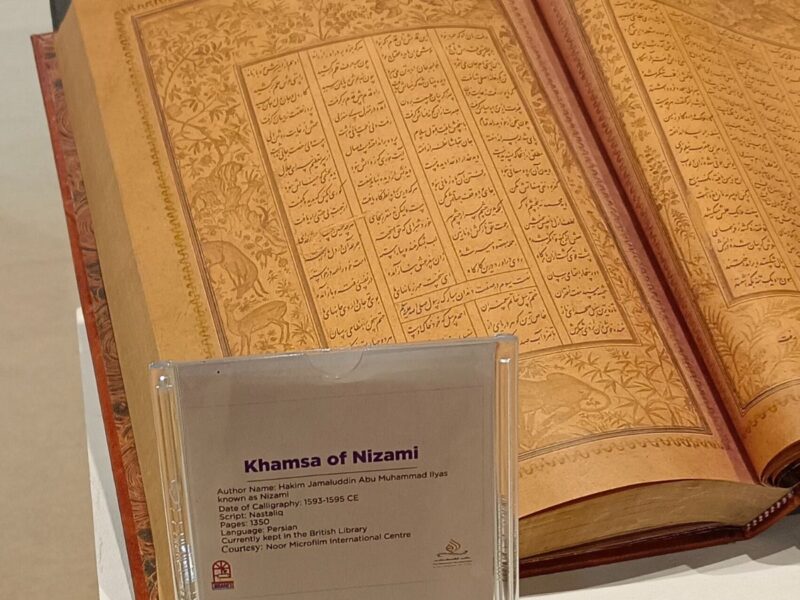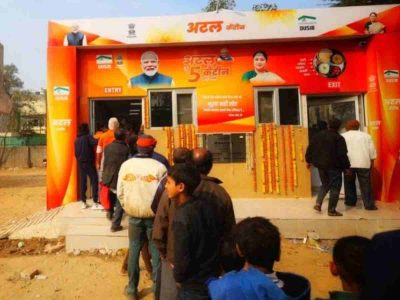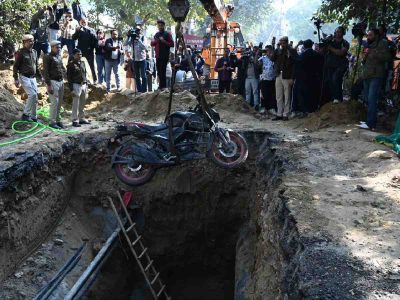Festival of libraries, organised by the Union Ministry of Culture on August 5 and 6 at Pragati Maidan, aimed to initiate conservation, digitisation and modernisation of libraries while highlighting the most iconic libraries from around the globe.
A part of the second phase of Azadi Ka Amrit Mahotsav, and in line with Prime Minister’s vision to foster development and digitisation of libraries and cultivate a culture of reading in India, the festival also marked the launch of a special ranking system of libraries across India.
Union minister of culture Arjun Ram Meghwal and Cultural Secretary Govind Mohan were also present on the occasion.
The festival also offered a field of activities that served various interest and age groups.
Visitors, especially children, indulged in thought-provoking sessions, and attended workshops and also had the opportunity to experience 10 captivating exhibitions showcasing cartographic archives, calligraphy types and cursive writing styles in 22 vernacular languages from all across India.
Another important session was conducted on archives and the oral histories, where they emphasised on the digitisation of archives with special emphasis on private archival collection. It also included a rare archival collection and manuscript exhibition.

Shazaad, a member of the embassy of Iran threw light on the same and said, “We help in the preservation of old, sacred books and manuscripts that were present in Iran and India during the medieval times. A lot of books have been translated into Hindi language from Persian. Here, we are showcasing a lot of ancient books, manuscripts and calligraphies that are believed to be sacred. One such example is the Khamsa of Nizami. This book is from the 12th century CE, was translated in India, including for emperor Akbar, after arrival here and a copy calligraphed between 1593-95, currently kept in the British library, is being showcased here at the expo.”
Another section The Art of Calligraphy included illustrations of all the manuscripts in Indian traditions. One such script was the Gilgit manuscript which is believed to have significance in Buddhist studies and the evolution of several languages of the world like the Chinese, Korean, Sanskrit, Japanese and Tibetan.
Another visitor Naghma Khan, a member of the Free Libraries Network, focused on the importance of books in one’s life.
“Books are one of the most important aspects of one’s life. For me, books have played a significant role as they help in the overall development of a person and also increase a person’s analytical skills.”
Another interesting section called ‘Book Dispensary Machine’ provided books from the vending machine.
Utkarsh, a resident of Malviya Nagar, said, “I really like the book machine. I think it’s a new concept that is borrowed from the food vending machine which would be making the experience quite fun for the reader. My personal favourite genre is philosophy. There are a lot of books present in that section. I think the expo provides a lot of exposure to visitors in general. I try to visit the expo every year and find out something new each time.
Tara Khandelwal, founder of Bound India, was also a speaker at the seminar at the expo.
She said, “We should teach the younger generation the importance of books and how they will be able to transform them for the good. I am a huge fan of historical fiction and always tend to keep up with the new release.”
In addition to all this, the expo also had a children’s play section where authors were present for the schoolchildren to make them understand the books and the stories. Visitors from all age groups were present.





